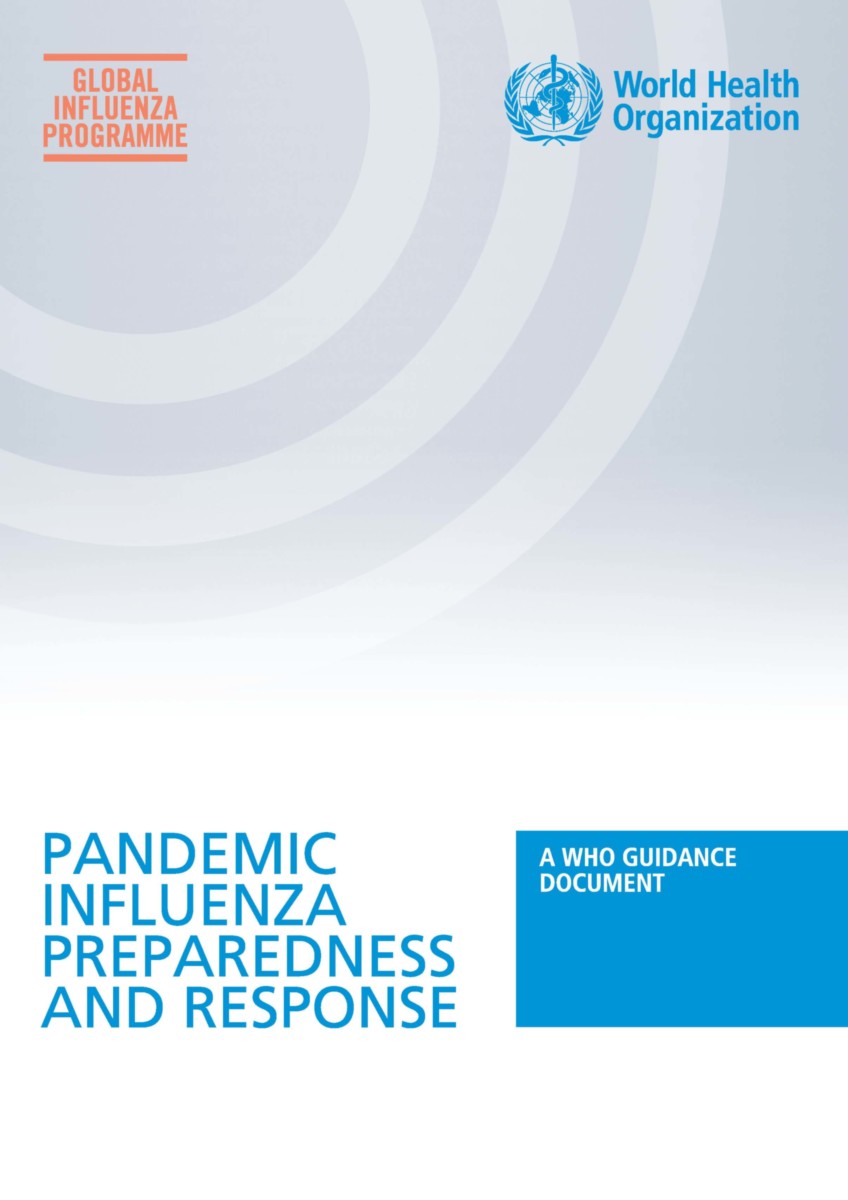Pandemic Influenza Preparedness and Response
A WHO Guidance Document
- Publisher
World Health Organization - Published
29th May 2009 - ISBN 9789241547680
- Language English
- Pages 60 pp.
- Size 8.5" x 10.5"
- Images Tables
Influenza pandemics are unpredictable but recurring events that can have severe consequences on societies worldwide. This revised WHO guidance publication on pandemic influenza preparedness and response has been developed to guide WHO Member States and others responsible for public health and pandemic influenza preparedness activities at the national level. It is the product of expert opinion, derived from several international consultations which included examination of available information and modeling studies, input from public health experts on lessons learned from SARS and both animal and human influenza responses, and consolidation of recommendations in existing WHO guidance. These recommendations were subject to an extensive public review.
This revision acknowledges that pandemic preparedness is centered around health sectors planning but must also be broader. WHO therefore advocates a "whole-of-society" approach to sustainable and ethical pandemic preparedness while focusing in more detail on the role of the health sector. The roles of WHO and national governments are outlined to create a better understanding of how health and non-health sectors, both public and private, all contribute to pandemic preparedness.
Foreword
Acknowledgements
Executive Summary
1) Introduction
2) Background
3) Roles and Responsibilities in Preparedness as a Whole-of-Society Responsibility
4) The WHO Pandemic Phases
5) Recommended Actions Before, During and After a Pandemic
Annex 1—Planning Assumptions
Annex 2—Revision Process
World Health Organization
World Health Organization is a Specialized Agency of the United Nations, charged to act as the world's directing and coordinating authority on questions of human health. It is responsible for providing leadership on global health matters, shaping the health research agenda, setting norms and standards, articulating evidence-based policy options, providing technical support to countries, and monitoring and assessing health trends.


